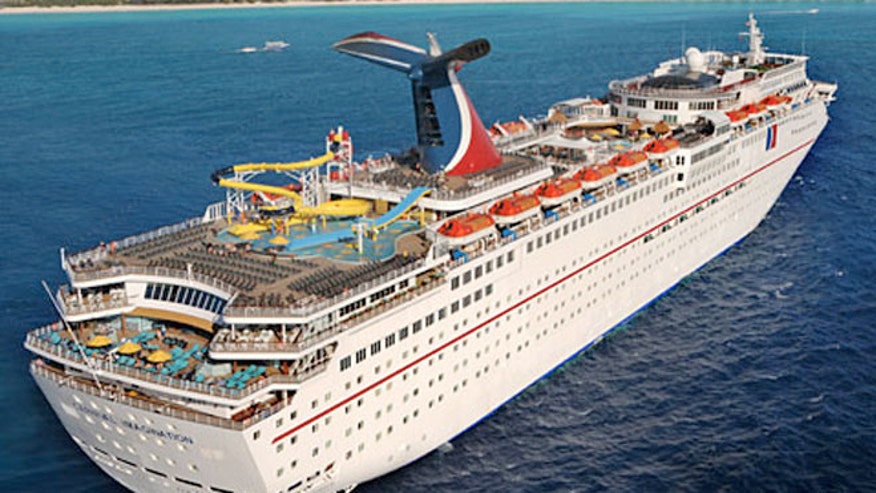delivering offshore connectivity has proved to be a daunting technical challenge. The standard cruise ship satellite-based service has been slow and pricey, billed per minute. Royal Caribbean is making a big bet on an emerging satellite technology that orbits more closely to Earth than conventional satellites, while the industry's largest cruise company, Carnival Corporation plc, recently announced a "hybrid" approach using multiple access technologies and algorithms to switch among in-port WiFi, long-range WiFi, and satellites.
Royal Caribbean MEO Approach
 |
| Oasis of the Seas aims to provide full-speed WiFi - Travel Weekly |
The Royal Caribbean fleet earlier changed out its legacy system, which had a download speed of 4 megabits per second, to Harris CapRock's system offering a five-times-faster 22 Mbps. O3b Networks will multiply that many times over to a lightning-fast 500 Mbps, Royal Caribbean chairman Richard Fain has said. Now it's on just a few ships, and due to the satellites' orbits, the service is optimized in the Caribbean.
Broadband Demand Hits the High Seas | EE Times
Royal Caribbean is rolling out Internet services via next-generation satellites operated by a company called O3b, whose founding mission is to provide Internet access to the "other 3 billion" people in the world who lack connectivity.IEEE MILCOM 2013 Paper - MEO Satellite Communications System final version.doc - ieeemilcom2013paper-meosatellitecommunicationssystemfinalversion.pdf
CIO Martin (who is a member of the InformationWeek editorial advisory board) says the O3b satellite system will let Royal Caribbean provide fiber-like Internet speeds to its ships in the middle of the ocean, replacing per-minute Internet pricing with an all-you-can-surf flat rate of $22 a day, based on a weekly package, similar to fancy hotel charges. Guests will be able to access most any apps they want, including streaming video. The service is available on Royal's newest ship, Quantum of the Seas, a 4,180-passenger vessel that began sailing last week and which the company is billing as a "smart ship" for all its on-board technology. The company's Allure of the Seas ship also offers the service, and it will be on Oasis of the Seas in December.
Abstract—Medium earth orbit satellites deliver fiberlike low latency to under-served locations. This paper describes the architecture of an efficient cost effective low latency medium earth orbit constellation using high power steerable Ka band spot beams. A seamless error-free satellite-to-satellite handover using dual tracking antennas and dual receiver modems has been developed to deliver continuous real-time performance for these interactive time-sensitive applications. For less delay sensitive applications, single tracking antennas provide high-speed ISR data transfer from sensor platforms to processing center and the rapid dissemination of processed intelligence information back to forward command posts and smaller groups.
The Carnival Hybrid Approach
 |
| Carnival Corporation announces faster, new WiFi network at sea to meet passengers demands | Fox News |
"In the past, people wanted to be on vacation and be disconnected," said Ramon Millan, senior vice president and global chief information officer for Carnival Corporation. "Recently we've found that people want to be connected. Knowing you have that option allows you to relax even more."
Millan said the network will be similar to a cell phone's when it changes from one data connection to another while moving across a coverage area. It's 10 times faster than connectivity previously offered on Carnival ships.
Pricing will vary by brand upon service rollout, which has already started on some ships. All of the company's ships are expected to have the new network by 2016.
Carnival unveils fast hybrid Wi-Fi system to go on 100-plus ships
WiFi@Sea involves a number of suppliers including MTN, Harris CapRock and Cisco, plus, in port or close to shore, additional vendors to provide the antennas and the Wi-Fi and to amplify the signal. Each ship must be equipped with the dishes and antennas to receive satellite C-band and Ku-band frequencies, long-range Wi-Fi and Wi-Fi.
The beauty of Carnival's technology is that each vessel switches seamlessly to the optimal system at the time. The algorithm looks for capacity, speed and what happens to other ships when a particular connection is selected.
Without specifying Carnival's WiFi@Sea speeds, Millan said sites load 10 times faster than before, video launches immediately and crew have successfully tested live streaming and are able to share photos and hold video conferences with family and friends.

No comments:
Post a Comment